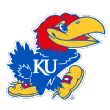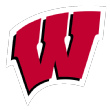Loyola-Chicago's incredible tournament run is over, but we will long remember how the Ramblers, with incredible shooting, last-minute heroics and, yes, Sister Jean, made it all the way to the 2018 Final Four.
Where does the Ramblers' run stack up with other surprise teams of NCAA tournaments past? Let's see.
Just note, there aren't a lot of teams from the 1970s on this list. With the exception of a few years at the very dawn of this event, the NCAA gave bids only to conference champions until the mid-1970s. Conference champions aren't often big underdogs (with an exception for 2010-11 Horizon co-champion Butler on this list).
Here's a look at the best Cinderella stories in NCAA tournament history:
1. Villanova Wildcats, 1985
 Rollie Massimino's men entered the NCAA tournament with a 19-10 record, and to this day the Wildcats are the lowest-seeded team to win the national title. Villanova was seeded on the No. 8 line, and won its first three games by two (in effect, a true road game at Dayton), four (against top seed Michigan) and three points (over Maryland), respectively. The Wildcats then won by relatively comfortable margins against North Carolina and Memphis (then called Memphis State), before facing Patrick Ewing and No. 1 seed Georgetown.
Rollie Massimino's men entered the NCAA tournament with a 19-10 record, and to this day the Wildcats are the lowest-seeded team to win the national title. Villanova was seeded on the No. 8 line, and won its first three games by two (in effect, a true road game at Dayton), four (against top seed Michigan) and three points (over Maryland), respectively. The Wildcats then won by relatively comfortable margins against North Carolina and Memphis (then called Memphis State), before facing Patrick Ewing and No. 1 seed Georgetown.
Ed Pinckney, Dwayne McClain. Harold Pressey and company famously went 22-of-28 from the field, but 'Nova also outscored the Hoyas 22 to 6 at the line. That was just enough for a 66-64 win in the last championship game played without a shot clock. That evening also marked the second-largest point spread upset in modern title game history. (No. 1 is Connecticut over Duke in 1999. The Huskies were, however, a No. 1 seed, and thus no Cinderella.)
2. NC State Wolfpack, 1983
 Yes, NC State's No. 6 seed might look a little high for inclusion on this list, but dig a little deeper, and consider that Jim Valvano's team sported a 20-10 record on Selection Sunday. Moreover, the Wolfpack were anything but a juggernaut in March. State likely needed its ACC tournament title to earn a bid, and NC State had recorded wins there by one, seven (in overtime) and three points.
Yes, NC State's No. 6 seed might look a little high for inclusion on this list, but dig a little deeper, and consider that Jim Valvano's team sported a 20-10 record on Selection Sunday. Moreover, the Wolfpack were anything but a juggernaut in March. State likely needed its ACC tournament title to earn a bid, and NC State had recorded wins there by one, seven (in overtime) and three points.
But once this team was in the bracket, the rest was history. NC State survived double overtime in the first round and two one-point contests (the second against Ralph Sampson and Virginia) to reach the title game, where Houston's legendary "Phi Slama Jama" lineup awaited. This was a rare (and possibly only) occasion where the favored team slowed the game down. Hakeem Olajuwon appeared to grow fatigued in Albuquerque's altitude, and when the All-American was on the bench, Cougars coach Guy Lewis chose to hold the ball. Houston shot just 10-of-19 at the line, and that helped set the stage for the upset. Dereck Whittenburg's airball from 30 feet out in the closing seconds led to an iconic rebound and dunk by Lorenzo Charles, giving NC State the 54-52 win.
3. George Mason Patriots, 2006
 Everything about George Mason's run was a surprise, starting with the bid itself. The Patriots had lost in the CAA tournament semifinals, yet Jim Larranaga's team earned an at-large bid as a No. 11 seed. A first-round win over Tom Izzo and Michigan State led to a game against North Carolina, whereupon GMU promptly fell behind 16-2. Nevertheless, Mason rallied for the win, took care of Wichita State, and then outlasted No. 1 seed Connecticut in overtime in a regional final for the ages. The Patriots left a who's-who of blue-chip programs in their wake, and proved beyond a doubt that mid-majors could play with the big boys.
Everything about George Mason's run was a surprise, starting with the bid itself. The Patriots had lost in the CAA tournament semifinals, yet Jim Larranaga's team earned an at-large bid as a No. 11 seed. A first-round win over Tom Izzo and Michigan State led to a game against North Carolina, whereupon GMU promptly fell behind 16-2. Nevertheless, Mason rallied for the win, took care of Wichita State, and then outlasted No. 1 seed Connecticut in overtime in a regional final for the ages. The Patriots left a who's-who of blue-chip programs in their wake, and proved beyond a doubt that mid-majors could play with the big boys.
4. Loyola-Chicago Ramblers, 2018
 Of all the teams on this list, none was burdened with the kind of multi-decade millstone of NCAA tournament futility that Loyola Chicago carried into March of 2018. In 2006, George Mason had appeared in the tournament as recently as 2001. Penn was actually coming off a Sweet 16 run the previous year when the Quakers reached the 1979 Final Four. No, the Ramblers stand alone among the Cinderellas in their programmatic back story: Loyola went 0-for-32 in tournament bids between 1986 and 2017. You know the rest. Ben Richardson, Marques Townes, Clayton Custer, Donte Ingram, Cameron Krutwig and Aundre Jackson bent history to their will. It was quite a sight, one we will not soon forget.
Of all the teams on this list, none was burdened with the kind of multi-decade millstone of NCAA tournament futility that Loyola Chicago carried into March of 2018. In 2006, George Mason had appeared in the tournament as recently as 2001. Penn was actually coming off a Sweet 16 run the previous year when the Quakers reached the 1979 Final Four. No, the Ramblers stand alone among the Cinderellas in their programmatic back story: Loyola went 0-for-32 in tournament bids between 1986 and 2017. You know the rest. Ben Richardson, Marques Townes, Clayton Custer, Donte Ingram, Cameron Krutwig and Aundre Jackson bent history to their will. It was quite a sight, one we will not soon forget.
5. Butler Bulldogs, 2011
 This group's not to be confused with the Butler team from the preceding year, the one that was a Gordon Hayward half-court shot away from beating Duke and winning a national title. That team was far less of a surprise. This 2010-11 bunch, conversely, lost at Youngstown State at the beginning of February, and sported a 14-9 record (6-5 in the Horizon). From that point on, however, Brad Stevens' men earned a No. 8 seed in the midst of a 14-game (and two-month) win streak before shuddering to a halt against Kemba Walker and a Connecticut defense that would not be denied in the national title game.
This group's not to be confused with the Butler team from the preceding year, the one that was a Gordon Hayward half-court shot away from beating Duke and winning a national title. That team was far less of a surprise. This 2010-11 bunch, conversely, lost at Youngstown State at the beginning of February, and sported a 14-9 record (6-5 in the Horizon). From that point on, however, Brad Stevens' men earned a No. 8 seed in the midst of a 14-game (and two-month) win streak before shuddering to a halt against Kemba Walker and a Connecticut defense that would not be denied in the national title game.
6. VCU Rams, 2011
 Shades of George Mason in 2006. The Rams were squarely on the bubble after losing the CAA tournament final to Old Dominion, 70-65. But when Shaka Smart's team was given a No. 11 seed in the first-ever First Four in Dayton, VCU never looked back. Unlike most of the other teams on this list, VCU cruised through its early games, winning its first three contests by an average of 16 points per outing. An overtime win against Florida State then put the Rams in the Elite Eight, where they gave No. 1 seed Kansas just its third loss of the year, 71-61. Only a fellow Cinderella like Butler was able to end VCU's historic run. The Rams are still the only team to go from the First Four to the Final Four.
Shades of George Mason in 2006. The Rams were squarely on the bubble after losing the CAA tournament final to Old Dominion, 70-65. But when Shaka Smart's team was given a No. 11 seed in the first-ever First Four in Dayton, VCU never looked back. Unlike most of the other teams on this list, VCU cruised through its early games, winning its first three contests by an average of 16 points per outing. An overtime win against Florida State then put the Rams in the Elite Eight, where they gave No. 1 seed Kansas just its third loss of the year, 71-61. Only a fellow Cinderella like Butler was able to end VCU's historic run. The Rams are still the only team to go from the First Four to the Final Four.
7. LSU Tigers, 1986
 Dale Brown's team gets extra points in these rankings for still being the only No. 11 seed to beat the Nos. 1, 2 and 3 seeds in its bracket. In doing so, LSU exhibited a degree of close-game mastery that even the Loyola of 2018 would respect. The Tigers opened tournament play with a double-overtime win against Purdue, before recording victorious margins of two, six and two points against Memphis (then known as Memphis State), Georgia Tech and Kentucky, respectively. It took Pervis Ellison and eventual champion Louisville to end LSU's storied run at the Final Four.
Dale Brown's team gets extra points in these rankings for still being the only No. 11 seed to beat the Nos. 1, 2 and 3 seeds in its bracket. In doing so, LSU exhibited a degree of close-game mastery that even the Loyola of 2018 would respect. The Tigers opened tournament play with a double-overtime win against Purdue, before recording victorious margins of two, six and two points against Memphis (then known as Memphis State), Georgia Tech and Kentucky, respectively. It took Pervis Ellison and eventual champion Louisville to end LSU's storied run at the Final Four.
8. Penn Quakers, 1979
 Head coach Bob Weinauer took the reins in 1977 from a young Chuck Daly in University City, and achieved immediate success. Penn reached the 1978 Sweet 16, and the following season was ranked as high as No. 14 in the AP poll. None of which impressed Magic Johnson and Michigan State, who rolled over the No. 9 seed Quakers 101-67 at the Final Four. Weinauer's men were thus the answer to an unfortunate trivia question for 37 years, until Villanova demolished Oklahoma 95-51 at the 2016 Final Four and set a new record for the largest margin of victory in a national semifinal.
Head coach Bob Weinauer took the reins in 1977 from a young Chuck Daly in University City, and achieved immediate success. Penn reached the 1978 Sweet 16, and the following season was ranked as high as No. 14 in the AP poll. None of which impressed Magic Johnson and Michigan State, who rolled over the No. 9 seed Quakers 101-67 at the Final Four. Weinauer's men were thus the answer to an unfortunate trivia question for 37 years, until Villanova demolished Oklahoma 95-51 at the 2016 Final Four and set a new record for the largest margin of victory in a national semifinal.
9. Kansas Jayhawks, 1988
 It's difficult to render any team with Danny Manning as a big underdog, but it is true that the No. 6 seed Jayhawks were, well, a big underdog in the NCAA tournament. In the final three games leading to the title, KU defeated Kansas State, Duke and Oklahoma -- all of whom had defeated Kansas that season in Lawrence. Manning recorded what still stands as one of the greatest individual performances in title-game history, posting a 31-point, 18-rebound double-double as the Jayhawks notched the 83-79 win over the Sooners. With 11 losses, the Jayhawks set a record that still stands for most defeats suffered by a national champion.
It's difficult to render any team with Danny Manning as a big underdog, but it is true that the No. 6 seed Jayhawks were, well, a big underdog in the NCAA tournament. In the final three games leading to the title, KU defeated Kansas State, Duke and Oklahoma -- all of whom had defeated Kansas that season in Lawrence. Manning recorded what still stands as one of the greatest individual performances in title-game history, posting a 31-point, 18-rebound double-double as the Jayhawks notched the 83-79 win over the Sooners. With 11 losses, the Jayhawks set a record that still stands for most defeats suffered by a national champion.
10. Wisconsin Badgers, 2000
 Under the direction of head coach Dick Bennett (and assistant coach Tony Bennett), Wisconsin arrived at the NCAA tournament with an 18-13 record that included losses at South Florida and Northern Illinois. But the Badgers seemed to find their identity on defense in February, and after Valentine's Day no opponent scored more than 60 points. Led by Mark Vershaw, Andy Kowske and the defense of Mike Kelley, Wisconsin earned a No. 8 seed, shocked top seed Arizona in the round of 32 and beat Purdue in the Elite Eight to reach the program's first Final Four since 1941. That's where the Badgers came up short for the fourth time that season against Mateen Cleaves and eventual champion Michigan State.
Under the direction of head coach Dick Bennett (and assistant coach Tony Bennett), Wisconsin arrived at the NCAA tournament with an 18-13 record that included losses at South Florida and Northern Illinois. But the Badgers seemed to find their identity on defense in February, and after Valentine's Day no opponent scored more than 60 points. Led by Mark Vershaw, Andy Kowske and the defense of Mike Kelley, Wisconsin earned a No. 8 seed, shocked top seed Arizona in the round of 32 and beat Purdue in the Elite Eight to reach the program's first Final Four since 1941. That's where the Badgers came up short for the fourth time that season against Mateen Cleaves and eventual champion Michigan State.
